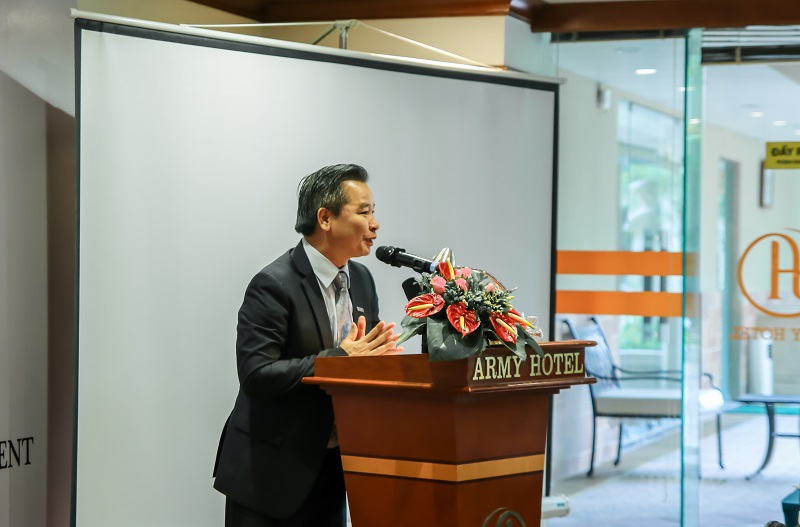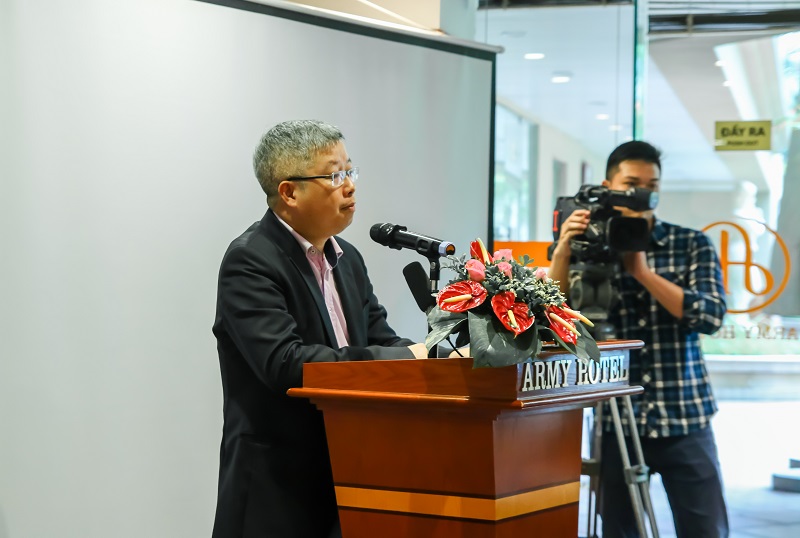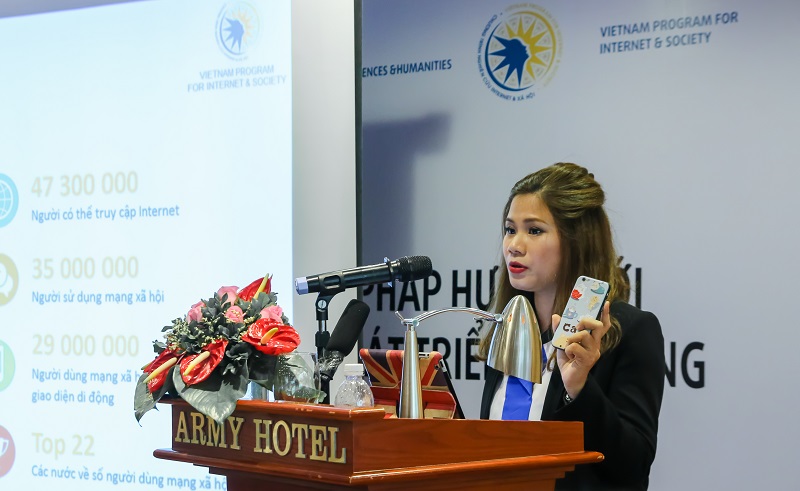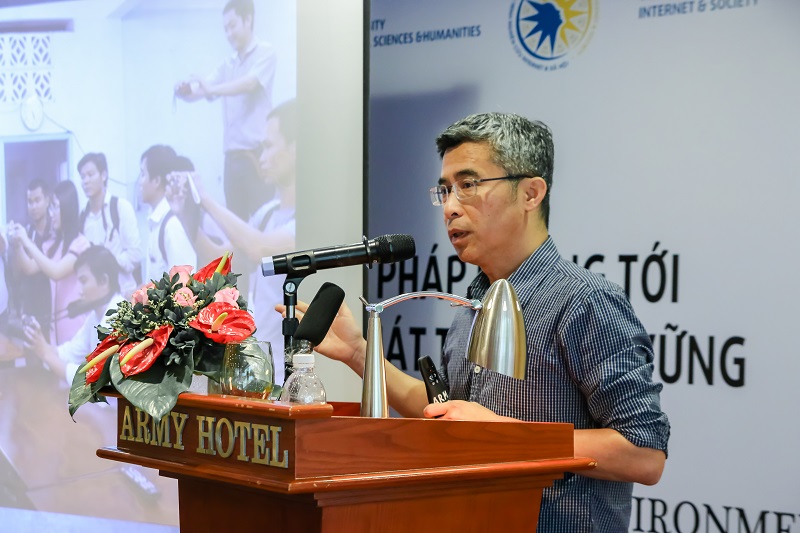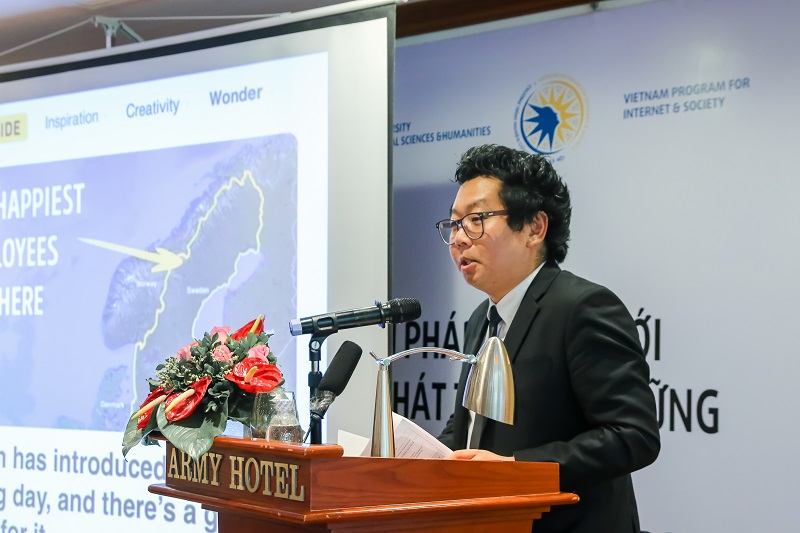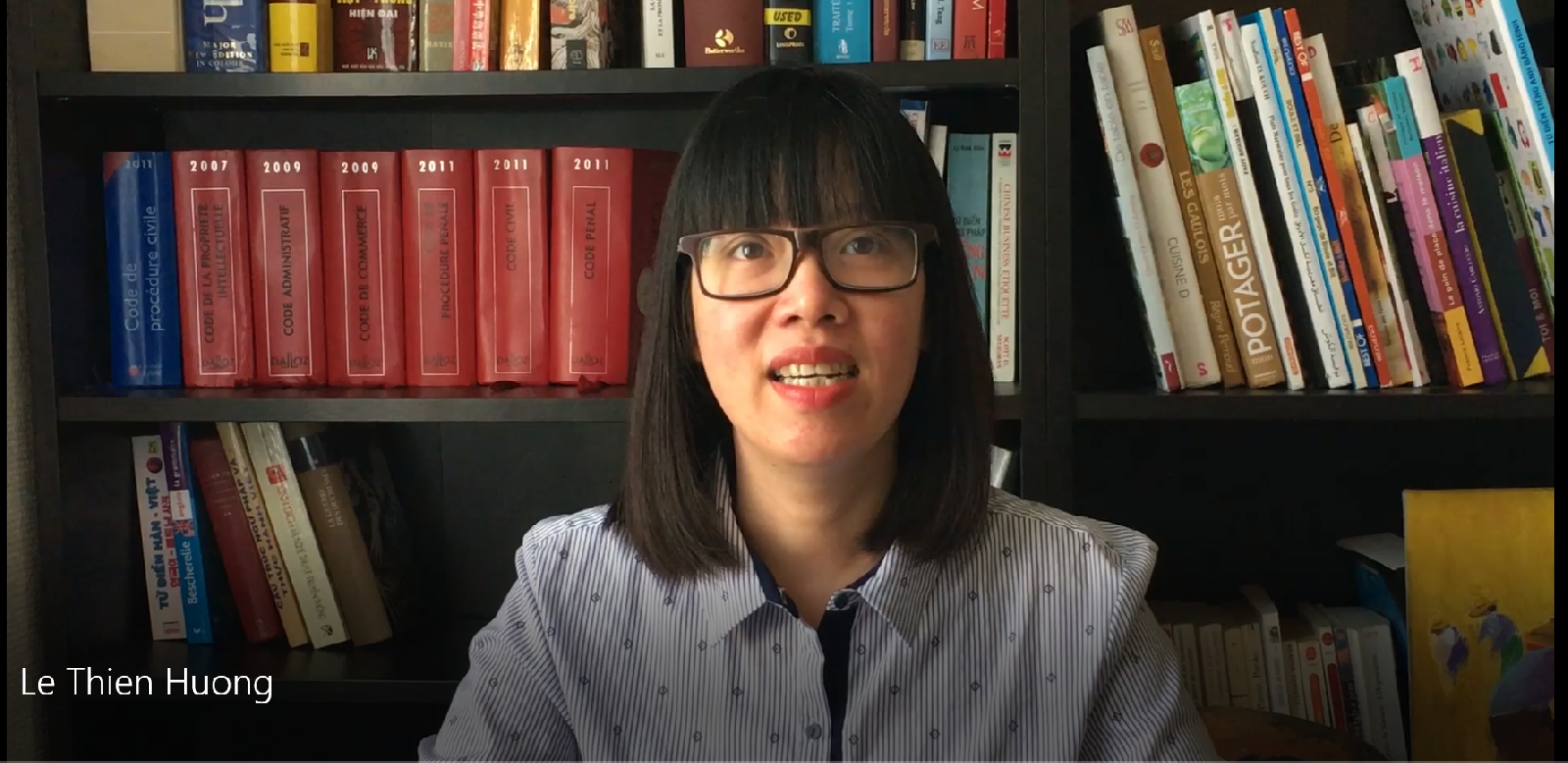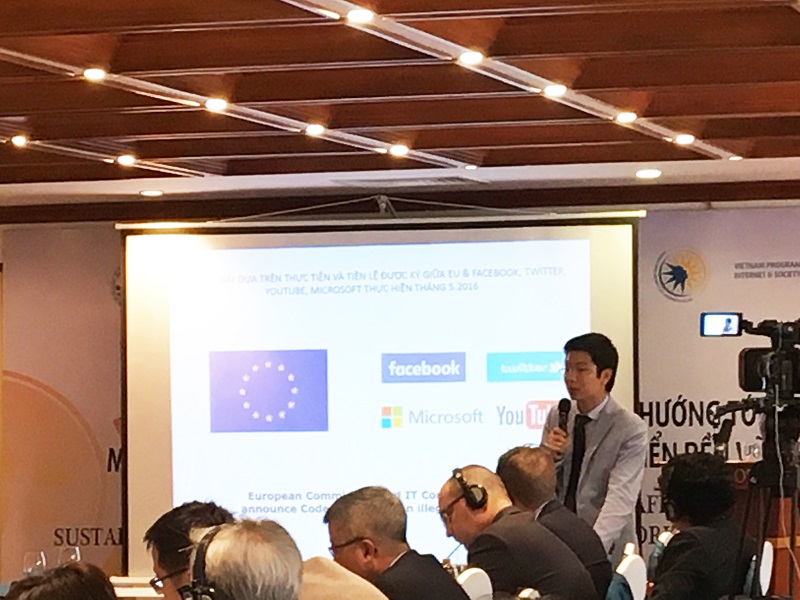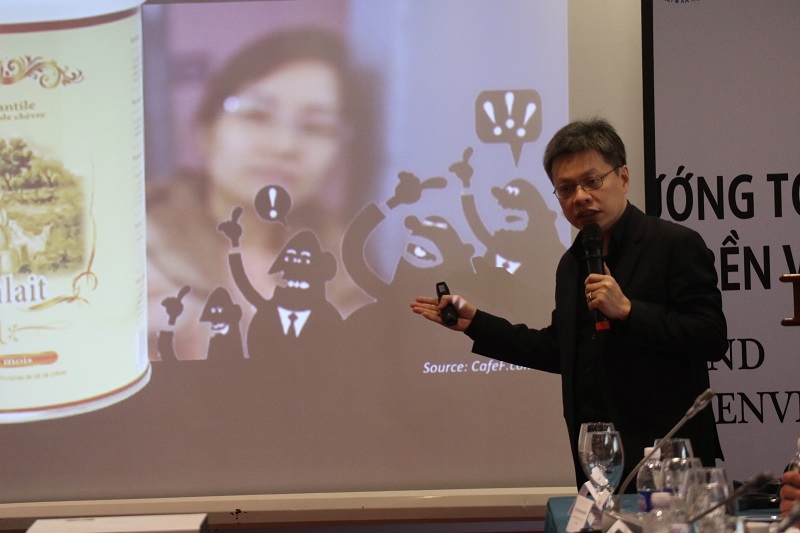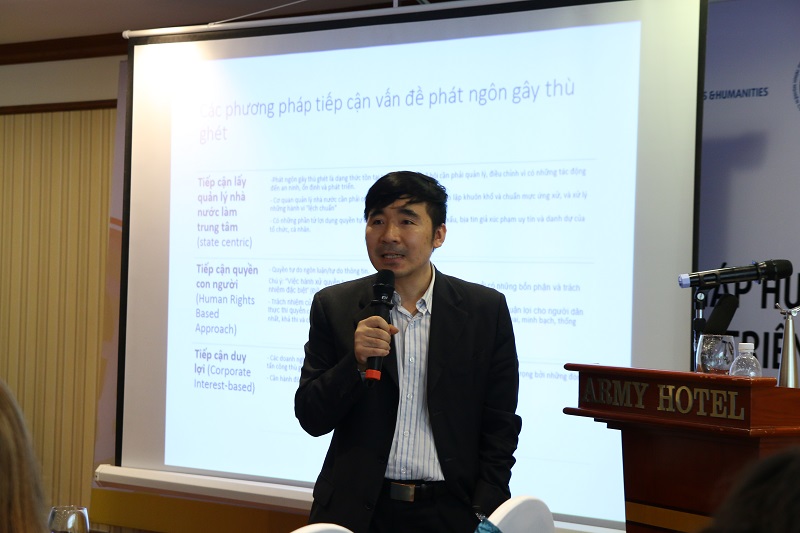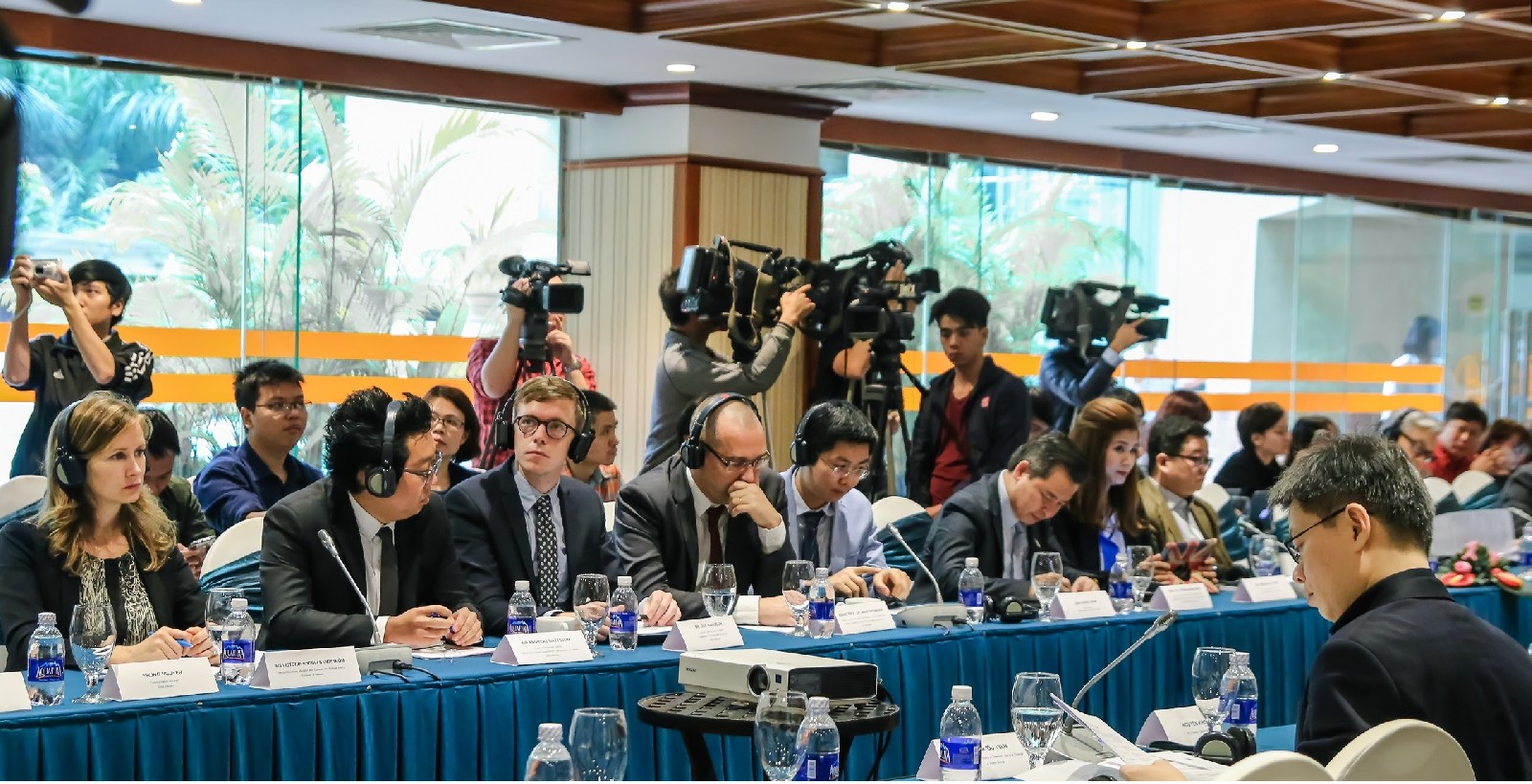
On 12/4/2017, Vietnam Program for Internet and Society (VPIS), University of Social Sciences and Humanities and Ministry of Information and Communications co-organised symposium on the topic: “Hate Speech and Solutions Towards a Safe and Sustainable Social Network Environment” at Army Hotel, 1 Nguyen Tri Phuong, Hanoi.
The symposium was the first official forum in Vietnam on the topic of “hate speech” with the participation of organisations, enterprises, and academic scholars nationally and internationally. The forum was a communication platform for scientific researchers, academics, policy makers and social networking platform providers to discuss possible solutions toward building a safe and fair social networking environment for Vietnamese users
Vietnam currently has more than 35 million social network users (37% of the total population) with an average daily usage of 2 hours 18 minutes. This is higher than the global average rate of 31% *. Besides the apparent positive aspects of social networking in modern social life, social networking also creates shortcomings for individuals and business users. Fake news and Illegal Hate Speech are increasingly popular, becoming an urgent matter now in Vietnam and in many cases beyond the adjustment of Vietnam legal regulation.
Looking into the situation in Vietnam, VPIS announces in its research (more than 1000 samples), 78% people are asked asserted that they were the victims or know the situation of hate speech in social networks in Vietnam.
At the opening speech, Prof. Dr. Pham Quang Minh, the president of the Program for Internet and Society (VPIS), the president of University of Social Sciences and Humanities, asserted: “Social networks give rise to a large playground for “global citizens” to freely connect and share. However, it is also a free and invisible tool where everyone can use to attack and take advantage from the hate speech. This situation is increasingly serious and brings about a large challenge not only in Vietnam but around the world.”
Prof. Dr. Pham Quang Minh, the president of the Program for Internet and Society (VPIS), the president of University of Social Sciences and Humanities
Mr Nguyen Thanh Lam, Director General of the Authority of Broadcasting and Electronic Information, Ministry of Information and Communication said: “Recently, the Authority of Broadcasting and Electronic Information, Ministry of Communication and Information, is implementing solutions consist of enforcing new appropriate rules suitable for reality of social networks and conduct dialogs, demanding for further collaboration and solutions toward a safe and sustainable social networks. We believe that this symposium is an opportunity for policy makers, researchers and businesses discuss possible solutions toward a long term solution for social network users in Vietnam".
Mr Nguyen Thanh Lam, Director General of the Authority of Broadcasting and Electronic Information, Ministry of Information and Communication
Dr. Pham Hai Chung, the Co-chair of Internet and Media, Vietnam Program for Internet and Society, said: “Based on the context of each country and area with the immanent contradictions, cultural factors and political views that hate speeches are defined differently. In Vietnam, hate speech is promulgating in social networks in different areas. According to VPIS research results, among hate speech contents, 61,7% social network users had witnessed hate speech contents or became victims of hate speeches on criticizing, cursing and insulting personal individuals and this rate on fabricating stories is 46,6%.
Dr. Pham Hai Chung, the Co-chair of Internet and Media, Vietnam Program for Internet and Society
With specific examples, author of “Thien, Ac and Smartphone”, Dr. Dang Hoang Giang revealed the reality of insulting public culture on social networks in Vietnam: “We are witnessing the surprising reincarnation of the public insulting phenomenon. In the Internet age, we have never been insulted as fast, easy and great as such. The invisibility of other internet citizens makes us indifferent to others’ pain. We have not imagined that behind the comments and an avatar are a person in flesh.”
Dr. Dang Hoang Giang, Deputy Director, Center for Community Development Studies
Hate speech is a global issue we are facing in the digital age. Other countries are trying to find the most useful solutions. Therefore, Vietnam can learn from the precious experiences of other countries.
Prof.Dr. Andreas Mattsson, Program Director and Lecturer, School of Journalism, Department of Communication and Media, Lund University, Sweden shared the reality of fake news and hate speech in Sweden: “Hate speech existing in social media is threatening the freedom and safety of Internet users, especially is gender discrimination towards females. This is a global issue, therefore, it is very important to share the experiences and solutions between countries.”
Prof.Dr. Andreas Mattsson, Program Director and Lecturer, School of Journalism, Department of Communication and Media, Lund University, Sweden shared the reality of fake news and hate speech in Sweden
Researcher, Dr. Le Thi Thien Huong from Poitiers University, France shared some solutions for hate speech in social media in France. She stressed: “The first solution is to establish clear, specific and harsh laws for social media. We cannot let the social media become a “no-law zone”. Another solution, taking broader range and more effective, is when the European Union established a “code of conduct” where social media enterprises committed to fight hate speech in Europe in 2014. Besides harsh laws and rule, the solutions toward tackling hate speech by notifying and deleting violated information is essential.” However, Ms Thien Huong also said that banning hate speech on social media is not a sufficient solution. Education is an additional solution, and is also very important.
Researcher, Dr. Le Thi Thien Huong from Poitiers University, France
Mr Cao Hoang Nam, the Chief Coordinator of Vietnam Program for Internet and Society said that in reality, the most powerful social media platforms are Facebook, Twitter and Youtube. They are the provider of basic service. These companies all said they do not have to take responsibilities for hate speech on social media. Though on social media websites, there are notification settings for users to report untrue, hating contents, though, deleting these contents is still slow, insufficient and does not satisfy real demands. Facing this phenomenon, this is the time to force these social media providers to take more responsibilities to limit hate speech so that there can be a safer and fairer internet environment in Vietnam.”
Mr Cao Hoang Nam, Chief Coordinator of Vietnam Program for Internet and Society
This forum has clarified and made consent between government agencies, scientific researching agencies, businesses and society about the consequences of “illegal hate speech” towards individuals, organizations, and society on social media. It also learns from the experiences of other countries and based on the context in Vietnam, this symposium agree that there should be soft methods based on ethics and education with the a proposal for “the Code of Conduct for social media in Vietnam” proposed by the Program for Internet and Society, University of Social Sciences and Humanities to increasing governmental implementation with more detailed and rigid regulations to mitigate and prevent this issue.
The issues mentioned in this symposium will be one of the main issues in Vietnam Internet Forum holding in the fourth quarter of 2017. which is an international conference gathering Internet researchers, corporations and policy makers to address the interactive impacts between internet and society in the view of social sciences
and humanities.
Mr Le Quoc Vinh, Chairman of the Board of Directors and General Director of Le Invest Group
Dr. Bui Hai Thiem, Head of Scientific Management Department, The Legislative Studies Institution, Standing Committee of the National Assembly
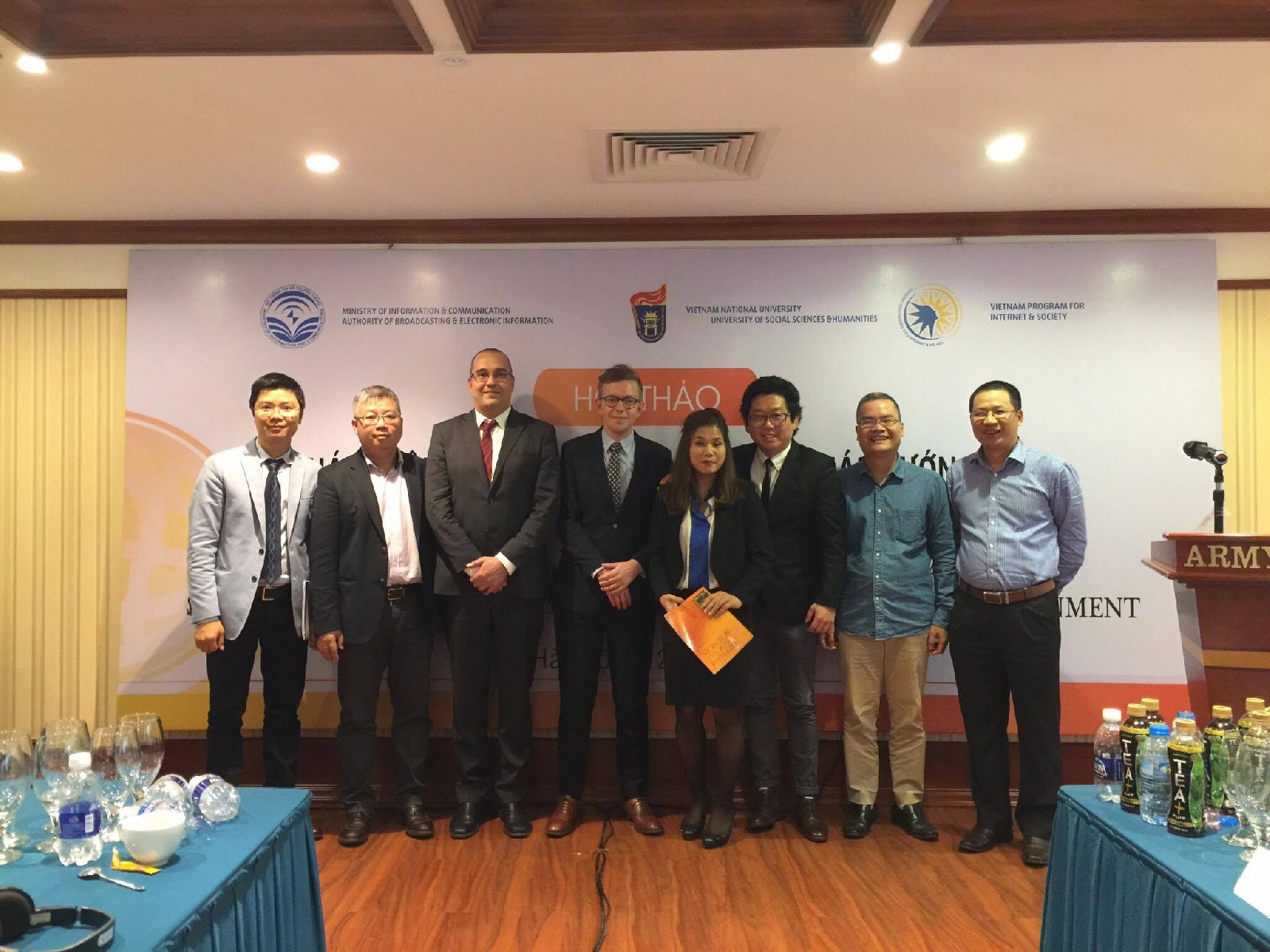
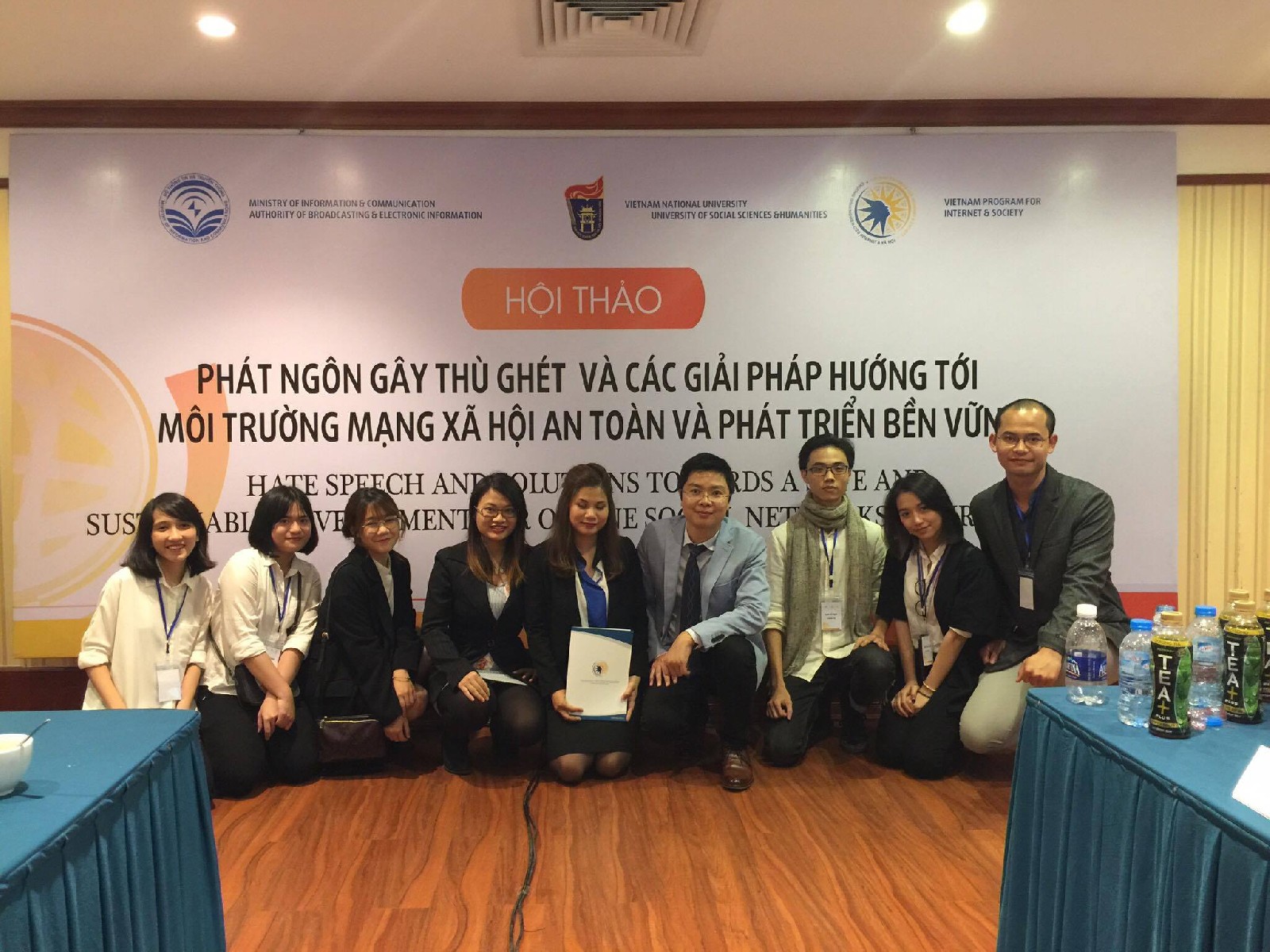
 Tiếng việt
Tiếng việt English
English
